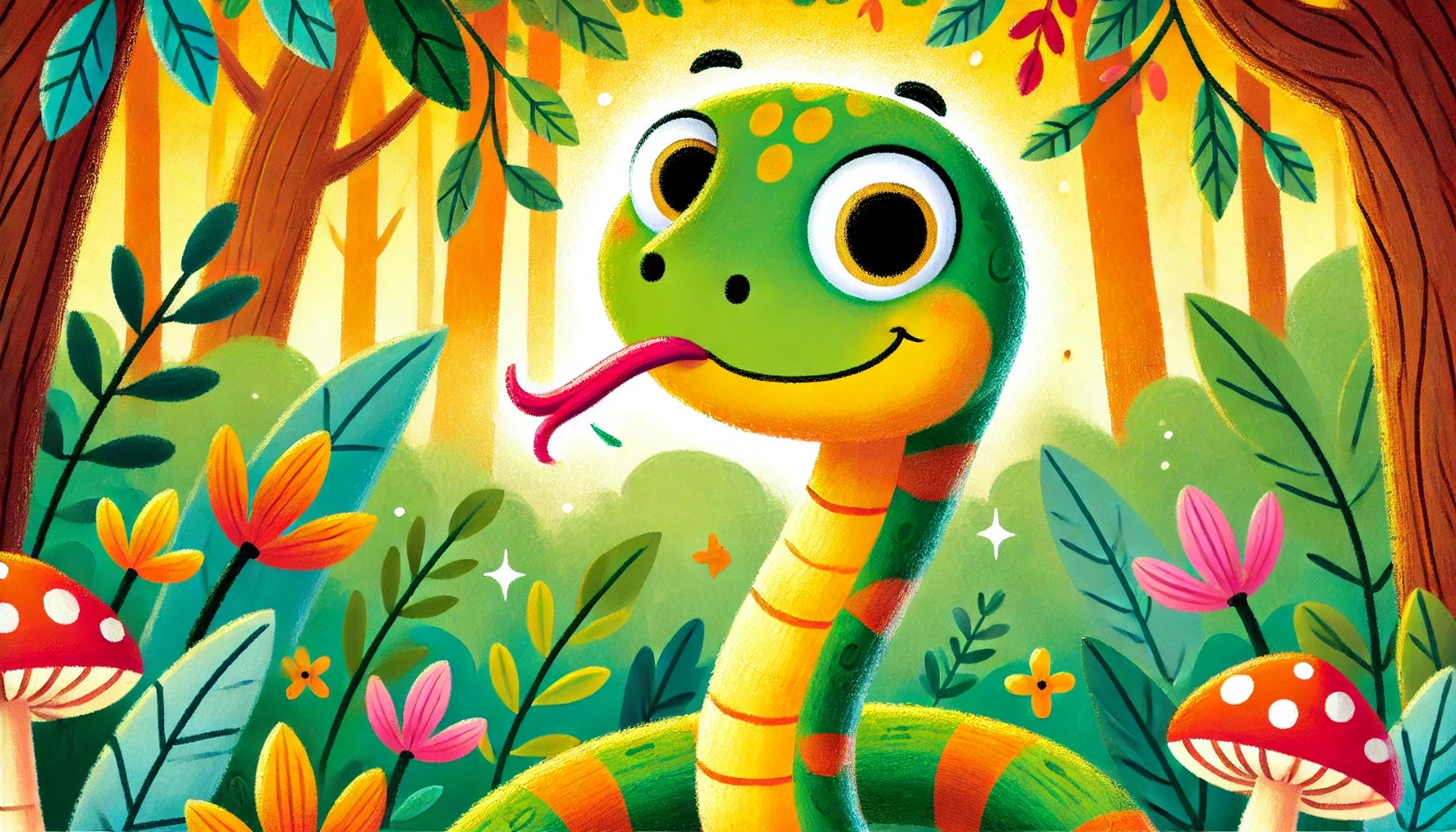Tidbits with Titus Podcast

Tidbits with Titus Podcast
Podcast Description
Bite-sized answers to the big questions kids ask us every day. www.tidbitswithtitus.com
Podcast Insights
Content Themes
Focuses on educational topics ranging from biology to physics, including discussions on how germs affect health, the science of color in fireworks, and the mechanics of speech and singing.

Bite-sized answers to the big questions kids ask us every day.
What Is Smelling?
Smelling is how we sense different things in the air, like fresh cookies baking or a field of flowers. Our noses have tiny parts called receptors that pick up scent particles from the air and send messages to our brain. This tells us what we are smelling!
Snakes don’t use their noses the same way we do. Instead, they use a special organ in their mouth called the Jacobson’s organ or vomeronasal organ. This is what helps them understand the smells they pick up with their tongues!
Hello my friends!
For a quick note, welcome to Tidbits with Titus, a podcast and newsletter where we tackle the big, curious questions kids ask every day in fun, bite-sized ways! I’m Alexander Titus, but I go by Titus. I’m a scientist, adventurer, and a huge fan of making science, technology, and life accessible to all ages. From “How does electricity work?” to “What are taxes?” and even “Why is the sky blue?” I’m here to dive into these wonder-filled questions with engaging stories and simple explanations that spark curiosity and make learning a joy. This effort is all about creating a space where families can learn together, discover the magic of the every day, and find thoughtful ways to explore the world’s big mysteries. Let’s make curiosity a family tradition—one tidbit at a time!
Just so you know, these podcast episodes are all AI-generated using Google’s really cool NotebookLM technology. That means there are some errors in how words are said, but that is part of the fun!
If your little ones have questions that you want help answering, shoot me an email at [email protected] and I’ll see what I can do!
You can subscribe to the newsletter that has this information as well at tidbitswithtitus.com.
Also please share with anyone you think would be interested. The more the merrier!
Cheers,
-Titus
The Superpower of a Snake’s Tongue
A snake’s tongue is not like ours. If you look closely, you’ll notice that it is forked, meaning it has two tips. When a snake flicks out its tongue, it gathers tiny scent particles from the air, ground, or even objects nearby. Then, it pulls its tongue back inside its mouth and presses it against the Jacobson’s organ, which helps it figure out what it is smelling.
The forked tongue is extra special because it helps the snake sense direction. If more scent particles are on one side of the tongue, the snake knows which way to turn to find what it’s smelling—like food or a hiding place!
Why Do Snakes Need to Smell So Well?
Snakes don’t have ears like we do, and their eyesight isn’t very sharp, so they depend a lot on their sense of smell to survive. Here are some reasons why snakes need their incredible smelling abilities:
* Finding Food – Snakes eat small animals like mice, lizards, and frogs. They use their tongues to smell where their next meal might be hiding!
* Avoiding Danger – Snakes can also smell if a predator, like a hawk or a bigger snake, is nearby. This helps them escape before they get caught!
* Recognizing Friends or Enemies – Some snakes use their tongues to pick up the scent of other snakes. This helps them know if another snake is from the same species or if they should stay away!
Do Snakes Have Noses?
Yes, snakes do have noses, but they don’t use them the way we do. Their nostrils help them breathe, but their tongues do most of the work when it comes to smelling. Some snakes, like pit vipers, can also sense heat from animals nearby, helping them find food even in the dark!
How Often Do Snakes Flick Their Tongues?
Snakes flick their tongues all the time! If they are hunting, exploring, or trying to sense danger, they may flick their tongues even more often. Some snakes flick their tongues several times in just a few seconds!
Fun Facts About Snakes and Their Smelling Superpowers
* Some snakes can smell better at night because the air is cooler and carries scent particles better.
* Different snakes flick their tongues at different speeds. Fast tongue flicking usually means they are very interested in something, like food!
* Snakes use their tongues to track scent trails on the ground, just like a detective following clues!
* Unlike humans, snakes don’t need to breathe through their noses while smelling. Their tongues do all the work!
Can Other Animals Smell with Their Tongues?
Yes! Some other animals, like lizards, also have Jacobson’s organs and use their tongues to smell. However, snakes are the best at using their tongues to understand the world around them!
What Would Happen If We Had Snake Tongues?
Imagine if people had forked tongues like snakes! Instead of just using our noses, we would flick our tongues to pick up smells all around us. It might be strange, but it would help us know which way a yummy pizza smell was coming from!
Conclusion
Snakes are amazing creatures with super senses! Their tongues help them smell, find food, avoid danger, and explore their surroundings. Even though they don’t have noses like ours for smelling, their Jacobson’s organ and forked tongues make them some of the best smellers in the animal kingdom. So next time you see a snake flicking its tongue, you’ll know—it’s just trying to sniff out the world around it!
This is a public episode. If you would like to discuss this with other subscribers or get access to bonus episodes, visit www.tidbitswithtitus.com

Disclaimer
This podcast’s information is provided for general reference and was obtained from publicly accessible sources. The Podcast Collaborative neither produces nor verifies the content, accuracy, or suitability of this podcast. Views and opinions belong solely to the podcast creators and guests.
For a complete disclaimer, please see our Full Disclaimer on the archive page. The Podcast Collaborative bears no responsibility for the podcast’s themes, language, or overall content. Listener discretion is advised. Read our Terms of Use and Privacy Policy for more details.